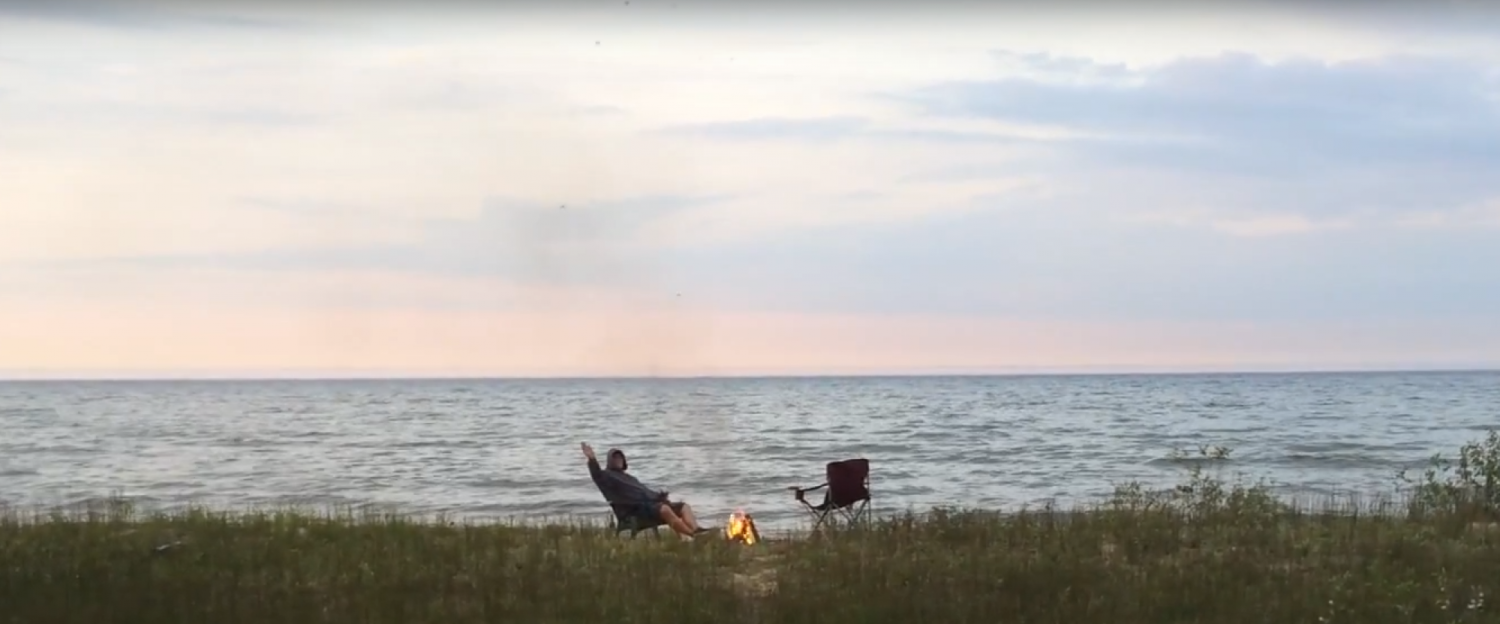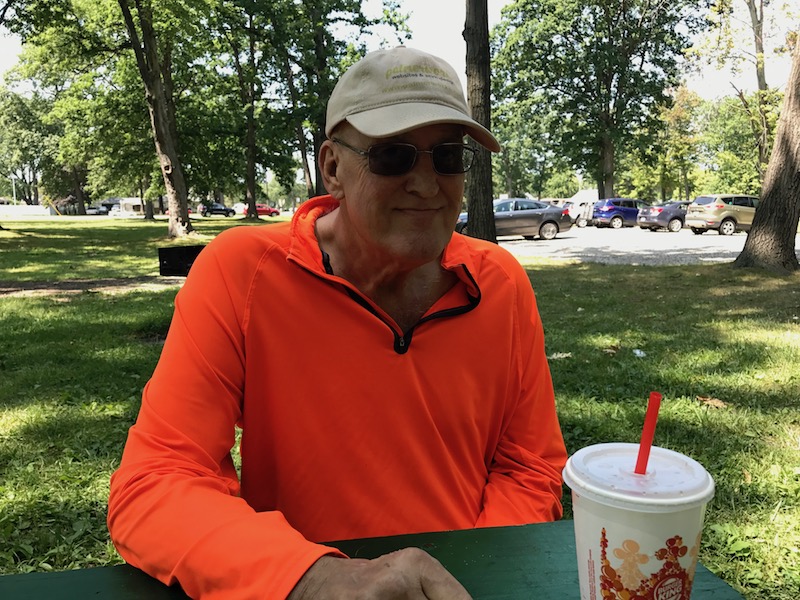Dear Rick,
My mind continues to go back to that day last August, the day you called me in to lay with you. I was working from home, as usual, and we had eaten Burger King in the park for lunch. Now it was 4pm, and I had just finished my work day in my home office. You had been napping in the bed across the hall. As you so often did in those last days, you called to me and asked me to join you in bed, and I obliged.
As I lay in your arms, you said, sadly, “I think we should close the business.”
I objected. I didn’t want you to work if you didn’t want to, but I knew that growing our business had been so important to you. You gave your all to the customers we had and to finding new clients. You even scheduled new client meetings around your early chemo appointments. I think I was panicked. I think now that I thought this meant you felt defeated, that there was no hope, so I protested the idea.
You said quietly, softly, “Honey, I don’t know how long I’m going to live.”
Those awful awful words play over and over in my memory. You knew. You knew. You knew.
Not one to ever ever give up hope, I suggested that we just get rid of the customers who were a lot of work, those that needed constant updates. We would keep only the websites that you really enjoyed working on. You loved creating, planning, writing. Why stop it all? And, besides, I said, the idea of transitioning all those clients to new hosts exhausted me. Transferring WordPress sites always involved some type of issue that would need resolving.
Always practical, you said, “No, the clients need to take that up with their new hosts. Companies got out of business all the time. We’ll announce that the business is closing at the end of the year, and the clients will need to find new web companies to take over and transfer the sites. You don’t have to take care of all that.”
Yes, always practical.
A weight lifted off me then. I knew you were right, and I think I wondered if I could go on with the business alone; to work a full-time job and come home to client work would be a lot of stress. But I didn’t want to think about a time in the future without you.
I suggested that I put together a list of all our clients, to see which clients were no work at all: the ones who only used us for hosting, the ones who simply paid their yearly fees and required no work from us.
So that evening, at 8:34pm, according to the Google Doc version history, I made a list of clients and organized them by those that required work and those that didn’t, and I shared the document with you so we could discuss it.
And because I did that, I can put an actual date to the conversation, the words that play over and over and over in my mind: “Honey, I don’t know how long I’m going to live.”
That evening was August 8, 2017. That evening was two days before you fell and broke your hip, five days before you died.
And I wonder now, why did I focus on the business part of the conversation? Why didn’t I ask how you felt about what you’d just said?
“Honey, I don’t know how long I’m going to live.”
Oh I’m pretty sure I had some type of response to that remark. I think I said something like, “well, none of us knows,” or some other inane, pat, easy answer, because I thought that was how you wanted it. You didn’t seem to want to talk about the reality of your death. You talked about being so lucky that the cancer was found early, that maybe that bode well and that it wouldn’t return. That maybe you’d be in the 10 percent who survived.
I wonder so many things now. I have lots of time to wonder. Was all that hopeful talk for you or for me?
I remembered another thing recently. I remembered something you said to me in our first months of dating. I was happy about something and you asked, “Do you ever get sad? Because I don’t think I could stand to see sadness in your eyes.”
Many times in the past twenty-one years, you saw sadness in my eyes. We survived loss and grief and life together. And if you’re here with me now, you’re seeing lots of sadness, unspeakable sadness.
I’m rehashing and questioning so much:
“Honey, I don’t know how long I’m going to live.”
Why didn’t I ask how you felt about that? Why you felt that way that particular day? If you really wanted to do something else with your time? If you wanted to talk, have a real talk, about the possibility that your death was imminent?
Did you know? Did you know you only had a few days?
But I didn’t ask.

